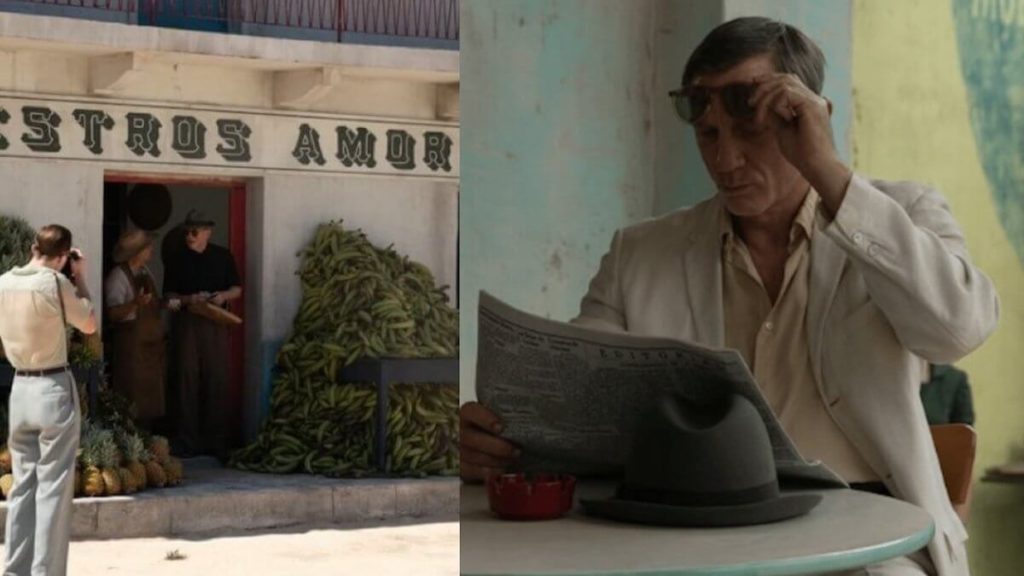Daniel Craig Shines in Luca Guadagnino’s Ambitious Yet Flawed Gay Romance
3 min read

Luca Guadagnino’s latest film, Queer, premiered at the Venice Film Festival to mixed reactions, showcasing Daniel Craig in a strikingly different role from his iconic James Bond persona. While Craig delivers a standout performance as a disillusioned writer steeped in casual sex and heavy drinking, the film itself struggles to maintain coherence.
Guadagnino’s previous work, Call Me By Your Name, faced criticism for its restrained depiction of male intimacy. Even screenwriter James Ivory suggested that the film would have benefitted from more explicit scenes. Guadagnino seems to have taken this criticism to heart in Queer, where the depiction of Daniel Craig’s character, William Lee, in intimate scenes is both explicit and unreserved. For fans who appreciated Craig’s physicality in Casino Royale, this film offers a different kind of spectacle.
In Queer, Craig steps into the shoes of William Lee, a character starkly different from the suave secret agent he is known for. The film, adapted from William Burroughs’s 1985 novel (originally written in the 1950s), begins in Mexico City. Here, Lee, draped in a trilby hat, linen suit, and pistol, roams from bar to bar, engaging in tequila-fueled conversations with other American expatriates, including a beer-bellied writer played by Jason Schwartzman. Lee’s quest for companionship leads him to Gene (Drew Starkey), a handsome photographer who captivates Lee despite uncertainty about Gene’s sexual orientation.
Craig’s portrayal of Lee is both touching and vulnerable. Stripping away the bravado of James Bond and Benoit Blanc, Craig showcases his range, delivering a performance that resonates with emotional depth and weariness. His portrayal of a man struggling with his fading charm and past glory provides a poignant anchor for the film’s narrative, at least in its initial stages.
The film, however, takes a sharp turn as it progresses. The first third, set in Mexico City, is compelling and establishes a strong emotional foundation. But in Chapter Two, the story shifts to South America, where Lee’s heroin withdrawal leaves him a fragile wreck. Chapter Three plunges into a surreal journey through the Ecuadorian jungle, where Lee and Gene search for a plant that supposedly bestows telepathic powers. This quest introduces a bizarre subplot involving a snake-wrangling botanist, played by Lesley Manville, leading the film into a trippy and unsettling body-horror territory reminiscent of Guadagnino’s Suspiria remake.
Despite the film’s unpredictability, it struggles to captivate. While Burroughs’s novel is celebrated for its raw sincerity, Guadagnino aimed for a “tender… universal story about love,” but the execution falls short. The film features a series of disconnected, eccentric vignettes that fail to fully engage or connect with the audience. The narrative meanders through self-indulgent episodes with characters we barely get to know, diminishing the impact of the love story.
Moreover, Queer presents itself as a deliberately artificial piece of cinema. The film’s soundtrack features anachronistic Nirvana and Prince songs, and its studio sets, reminiscent of Edward Hopper’s paintings, contribute to its oddly detached atmosphere. Despite Craig’s heartfelt performance, the film fails to achieve the emotional resonance of Guadagnino’s previous works like Call Me By Your Name, or even his more recent films, Bones and All and Challengers. It also falls short in comparison to Craig’s own memorable roles, including his turn in Casino Royale.
In summary, while Daniel Craig’s performance in Queer is exceptional and deeply moving, the film itself struggles with a disjointed narrative and an overly stylized presentation. Guadagnino’s ambitious attempt to craft a poignant gay romance ultimately results in a film that is as intriguing as it is inconsistent.